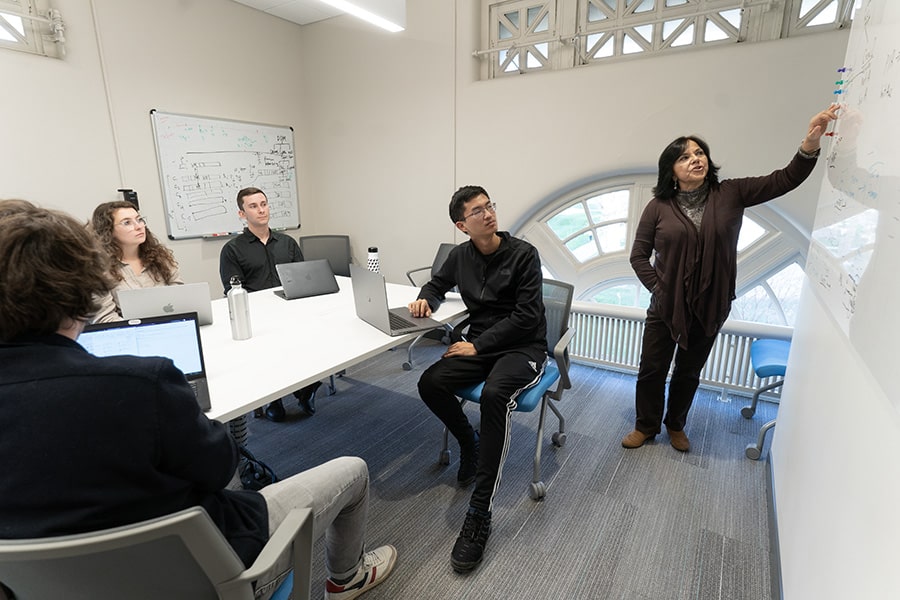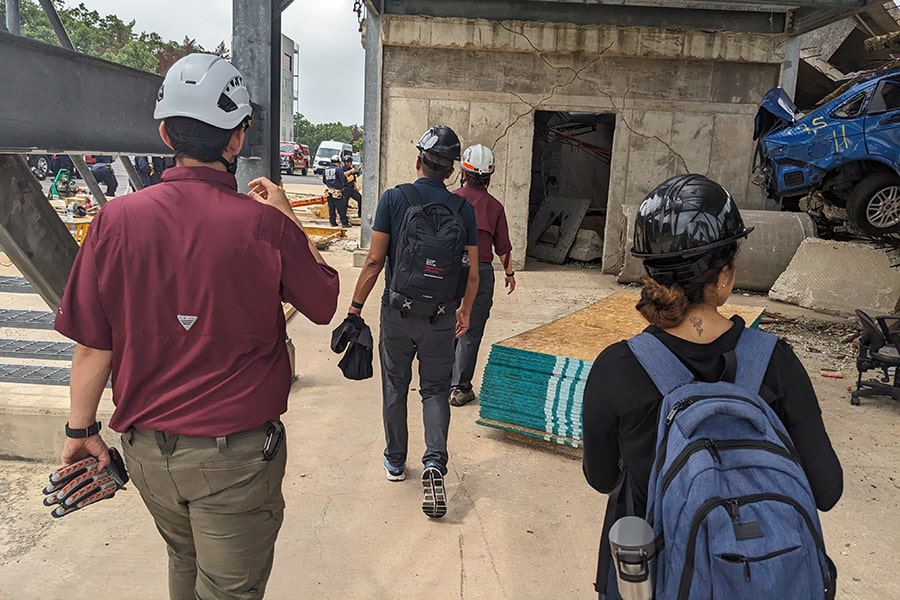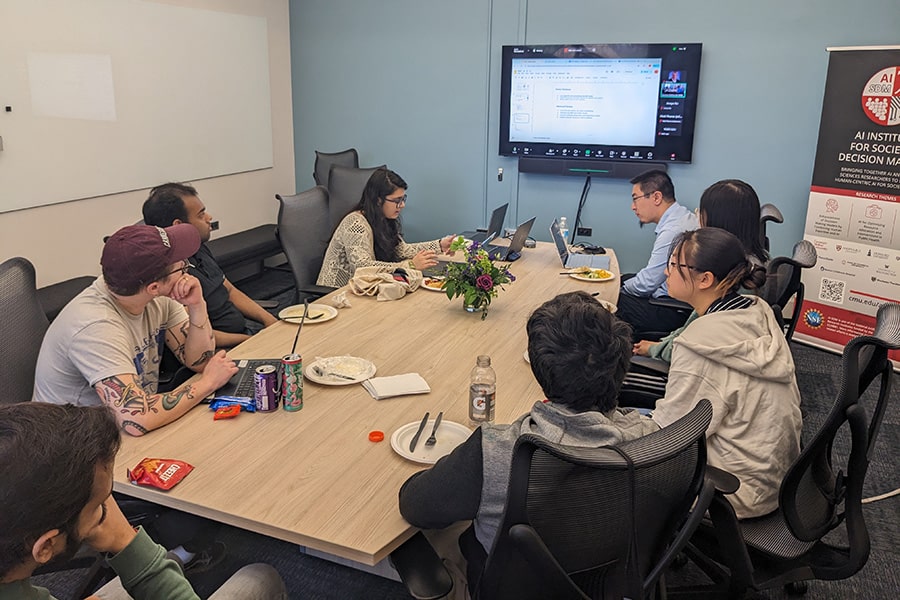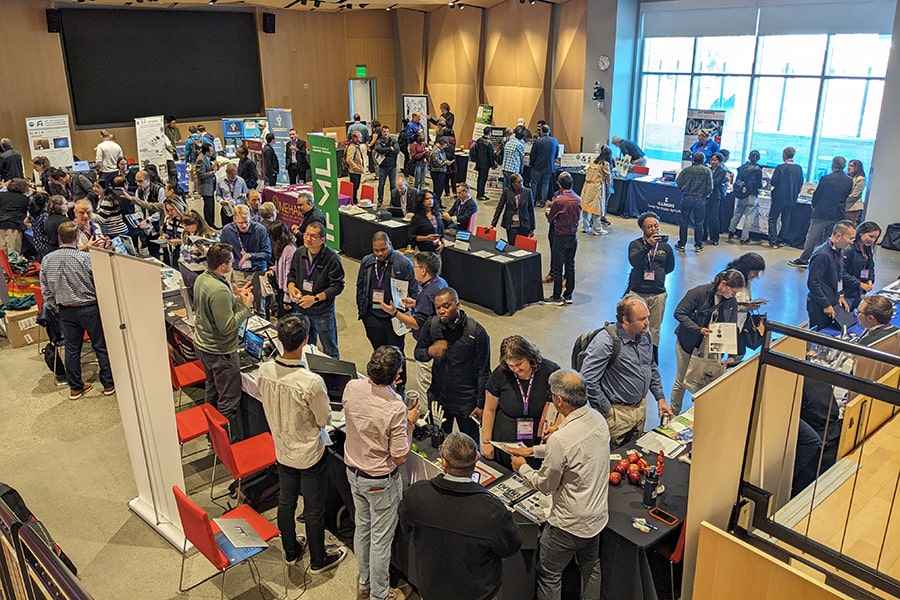Opportunities for Graduate Students
For graduate students driven to shape the future of artificial intelligence and its impact on society, AI-SDM offers a dynamic and interdisciplinary environment for advanced study and research. Our innovative programs, including a joint PhD program in Autonomous & Human Decision Making, provide rigorous training through a diverse curriculum and unique opportunities to engage with cutting-edge research. Our graduate students are immersed in a collaborative research culture, working alongside faculty who are at the forefront of AI and societal decision making. A cornerstone of our graduate experience is experiential learning, where you'll collaborate with nonprofits and practitioners, applying your expertise to address real-world challenges. We also foster an active intellectual community through brainstorming sessions and offer networking opportunities, all within a supportive and collaborative ecosystem.
 Joint PhD in Autonomous & Human Decision Making
Joint PhD in Autonomous & Human Decision Making
Our Joint Ph.D. program, a collaboration between CMU's Machine Learning Department (MLD) in the School of Computer Science and the Department of Social and Decision Sciences (SDS) in the Dietrich College of Humanities and Social Sciences, offers a groundbreaking interdisciplinary training experience. This program is designed to cultivate experts who understand both the technology of artificial intelligence and the complexities of human decision-making, with a focus on how and when AI can effectively augment human cognitive processes.
Program Goals
The core goal of this program is to cultivate experts trained in both the technology of artificial intelligence and the intricacies of human decision science, with a specific focus on understanding how and when AI can effectively complement human cognitive processes. Students will receive comprehensive training in the fundamentals of AI and autonomous decision making, the core principles of human decision and behavioral science, cognitive models of decision making, and the broad societal impact of AI technologies. We anticipate that graduates will be highly sought after and will excel in academic roles within Computer Science or Cognitive Science departments, as well as in diverse non-academic organizations that require deep expertise in machine learning and/or behavioral decision science.
Curriculum Highlights - New Courses
10-734: Foundations of Autonomous Decision Making Under Uncertainty
This course explores the AI algorithms used for real-world decision making in the face of uncertainty. It covers topics ranging from stochastic experimental design and Gaussian process optimization to advanced methods for sequential decisions like bandits, online learning, active learning, and reinforcement learning. The course emphasizes understanding the methods, analysis techniques, computational complexities, and open challenges in this critical area.
10-736/88-836: Human-AI Complementarity for Decision Making
This course explores the emerging science of how humans and AI can complement each other in high-stakes, dynamic situations. It examines the distinct strengths each brings to decision-making, explores the conditions for effective human-AI collaboration, identifies research gaps, and challenges students to propose interdisciplinary research to advance this field. A key component of the course involves students developing a potentially fundable research proposal.
 Master of Science in Applied Data Science Program
Master of Science in Applied Data Science Program
The Master of Science in Applied Data Science (MADS) program at Carnegie Mellon University offers intensive training in data analysis and statistical computing, preparing graduates for impactful careers in data science. A key feature of the program is its emphasis on real-world applications and collaborations.
AI-SDM actively collaborates with the MADS program to provide students with unique opportunities to engage with cutting-edge AI research. In a recent project, the Institute partnered with MADS students to improve the alignment between drone imagery and building maps in a real-world disaster dataset. This hands-on experience allowed students to apply advanced data science techniques to a critical AI application in disaster assessment, directly contributing to the Institute's research goals.
 Experiential Learning
Experiential Learning
A defining feature of our graduate programs and research assistants is the commitment to experiential learning. We believe that applying academic knowledge to real-world challenges is crucial for developing impactful researchers and leaders. Our graduate students have unique opportunities to collaborate directly with nonprofits, government agencies, and industry practitioners.
Through these collaborations, students may engage in projects such as developing AI tools for disaster relief organizations, analyzing data for public health initiatives, and evaluating the ethical implications of AI adoption in specific sectors.
 Student Brainstorming Sessions
Student Brainstorming Sessions
We foster a vibrant intellectual community among our graduate students through regular brainstorming sessions. These forums provide a space for students from diverse research areas to connect, share ideas, discuss their work, and foster interdisciplinary collaborations. These sessions encourage the cross-pollination of knowledge and the development of innovative research directions.
 Professional Development & Networking
Professional Development & Networking
AI-SDM is committed to supporting the professional growth of our graduate students. Throughout the year, we offer a variety of professional development sessions and networking opportunities specifically designed to prepare you for future careers and leadership roles in the field of AI and its societal applications.
